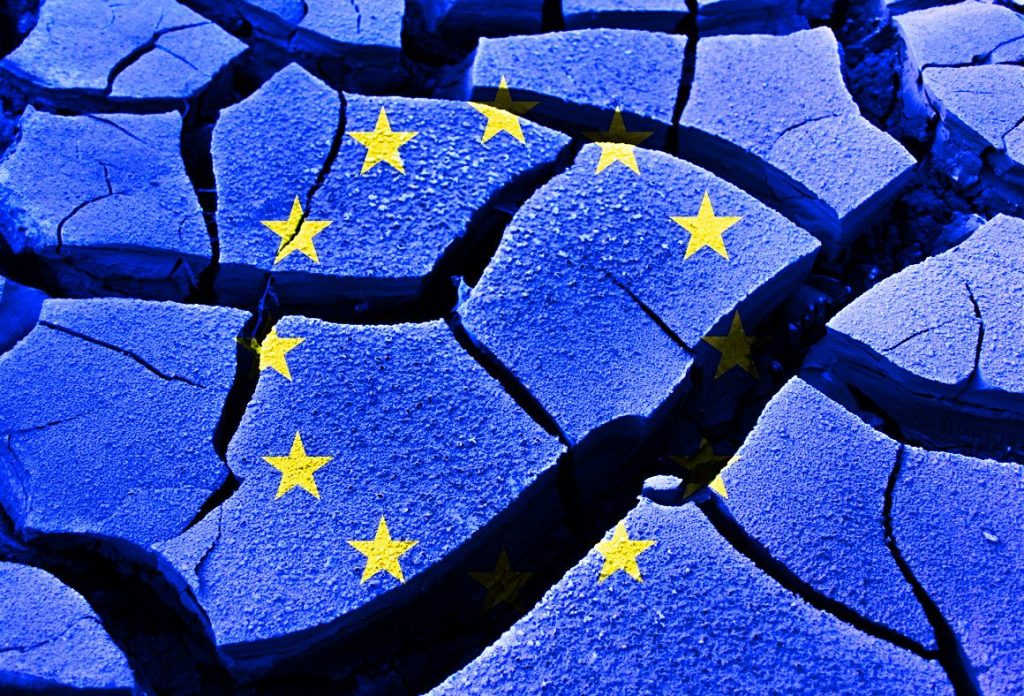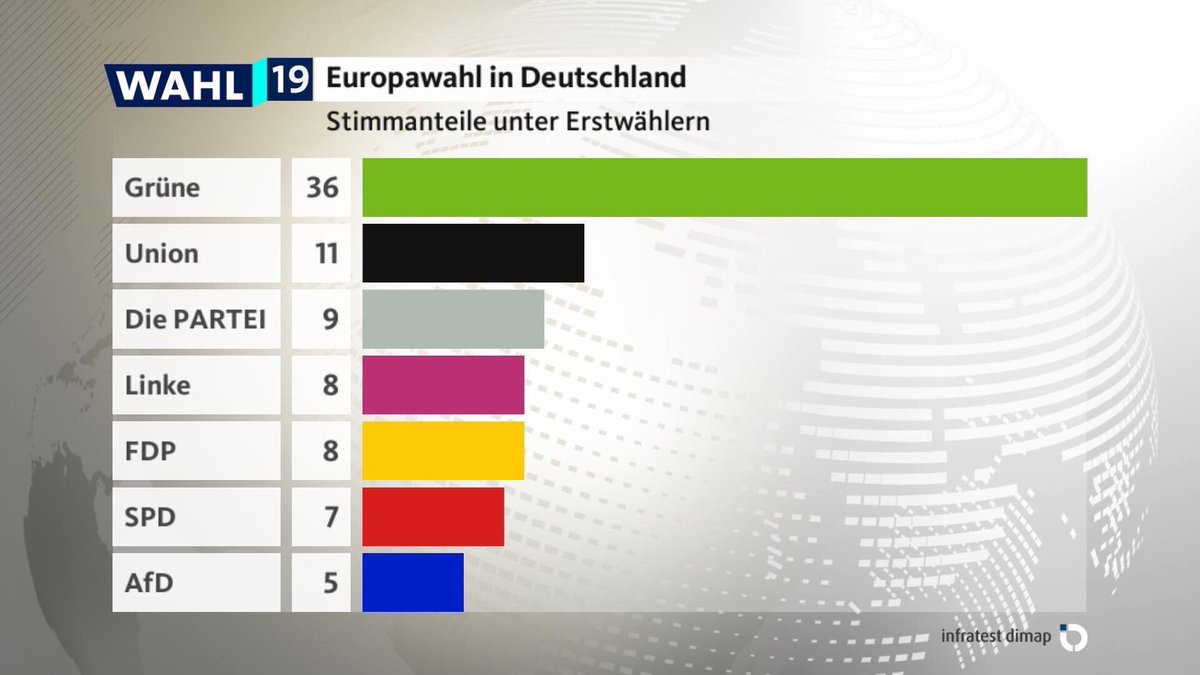There is an odd feeling about the EU elections. One senses that something just is not right.
Mathew D. Rose is an Investigative Journalist specialised in Organised Political Crime and an editor of BRAVE NEW EUROPE.

While mainstream media is trying to put the European elections in an EU perspective, the truth is, this was a collection of national elections dominated by unresolved domestic issues, resulting in political fragmentation. Probably nothing is more indicative of this than the ever increasing number of parties elected to send representatives to the European Parliament. The centrist parties have suffered a setback, but certainly not a major one, which nonetheless sets the stage for some very sloppy coalition constructions. On the other hand, even the Greens, whose number of EU parliamentarians, despite headlines, only increased slightly, tend to be neo-liberal, so there is little chance of a meaningful political shift, just a lot of horse trading on the policy fringes.
If you took the trouble to follow the elections in individual EU member states, they were centred on domestic issues. In Romania it was a referendum on the egregiously corrupt, pro-EU Social Democratic Party, which resides very happily among the Social Democratic Faction in the EU Parliament. They lost around one-third of their votes, in comparison to the previous EU elections and were relegated to second place, barely avoiding the ignominy of third place. At the same time a referendum was held to bar the Social Democratic government from employing emergency decrees to change justice legislation and create an amnesty for people convicted of corruption (mostly Social Democrat politicians). This had nothing to do with the EU.
In France there was no Frexit party. The EU election was a referendum on President Emmanuel Macron. Not only did he lose the election, he could not muster 25% of the vote. Here too, this had nothing to do with the EU, but with Macron’s neo-liberal policy.
The dominance of domestic politics in this election was just as prominent in EU-hegemon Germany. The Social Democrats, traditionally the most pro-EU party in Germany, suffered a major defeat, falling by almost half to 15.8%. In their last German stronghold, the state of Bremen, a new state government was elected, with the SPD suffering another resounding defeat. Thus this was an issue of a political party in domestic meltdown (see here), having little to do with the EU.
Nor did the other German pro-EU centrist party, the Christian Union of Angela Merkel, fare well, falling from 35% to 29%. In fact, with the exception of the Greens none of Germany’s traditional parties had good results. What highlights the loss of credibility of Europe’s old guard parties is that in Germany small parties, ranging from “The Animal Protection Party” to the “Family Party” won over 10% of Germany’s seats in the EU Parliament. “The PARTY”, organised by German comedians, increased its number of seats to two, barely missing out on a third (that would have been half as many as Malta has). Indicative of where things are going was the voting preferences of young people casting their ballot for the first time. The Greens won over a third of these votes. Merkel’s Union just beat “The PARTY”, the rest of the established parties were edged out by the comedians.

infratest/dimap
One could go through every EU nation and the election story is the same: domestic politics dominated by disillusioned citizens.
Then there are the claims by corporate media that the Far Right “hardly” made any inroads. This is completely wrong. They had accomplished this long before the elections as most European political parties had already moved to the right. The EU’s immigration policy, which includes letting thousands drown in the Mediterranean Sea, paying Turkey’s dictator Erdogan billions of euros to close his border with the EU, or reintroducing border controls within the EU, are just a few examples. When one considers the election successes of Salvini’s “The League” in Italy, Le Pen’s “National Rally” in France, PIS in Poland, Orban’s Fidesz in Hungary, not to mention many smaller Rightist parties elsewhere, one has to ask what constitutes “hardly”? Salvini has reckoned with 150 seats for populists, whereby he is not including parties like Fidesz, which are members of the centre-right faction.
One should not forget that there is no real opposition in the EU Parliament. There is hardly a Left any more and the Right has discovered that the EU can be very useful and munificent as long as they accept the economic predominance of transnational corporations and their neo-liberal regimen. They can even defy Germany on political matters as long as these have no major economic consequences for the transnationals. In fact, where power is slowly slipping from the hands of the centrists, the Right is proving to be a stable and reliable partner for these corporations. While Orban and Salvini have their citizens under control, the Spanish government and Macron have had to resort to massive state violence, militarised liberal democracy, to suppress democratic movements. These are not the sort of scenes that are representative of democratic concord. It has only been thanks to the EU political class and the mainstream media ignoring such events, as they do the corpses floating in the Mediterranean and the abject failure of the EU’s climate change policy, that these events have received so little attention.
How odd perceptions of these elections can be was proven by British Remainers, who are claiming victory in their opposition to Brexit. Strangely the pro-Brexit party, probably the only party overtly calling for disbanding the EU, won hands down. They and Merkel’s Union will be sending the largest factions to Brussels with 29 members each. And there they will be for the next five years should Britain remain in the union.
So, what has changed in the EU? Besides a handful more Greens (16), which might result in more bicycle lanes in the EU, and an even larger handful of what are being termed “non-aligned” (8) and “Others” (30) parliamentarians, not much. The established parties, the centre-right (European People’s Party), Social Democrats, and Liberals – all neo-liberal – still have a massive majority of 434 of 751 seats. Thus it seems rather peculiar that corporate media keeps claiming that the mainstream is losing ground, even if the Right or Greens are going to abandon neo-liberalism, which is highly unlikely.
Thus there is no real change in sight, just more of the same. With the exception of the UK – maybe – this election had nothing to do with Europe, but attempts by citizens to alter what they see as dysfunctional politics in their own nations. What most of these Europeans have not comprehended is that there will be little change, because their nations have given up control of the most important domestic policies to the EU. Italy was not permitted to increase its spending by an additional percent to aid its ailing economy and combat high unemployment because the EU did not allow it. 1 percent!
The Germans, fearing that Europe is beginning to fragment, may attempt to tighten their grip on the EU administration. They already occupy many key positions. It could well be that they will also take over the presidency of the European Central Bank with Jens Weidmann, and install another German, Manfred Weber, as president of the European Commission. This may well be necessary if they are to maintain their dominance in the EU. Should the world economy continue its decline, that will hit exporting nations especially hard. The EU nations, not only Germany, have in the meantime become equally reliant on exports to keep their economies afloat. That setback would result in higher unemployment and, after ten years of austerity, the patience of EU citizens is running out – as these elections proved. The younger generation will also understand that it is not only their national governments that are blocking the necessary changes to stop the climate disaster, but especially the EU.
While the EU political class are slapping one another on the back and congratulating themselves on a great election, we are approaching the sobering realisation that we have arrived at the next stage of the EU crisis.


Be the first to comment